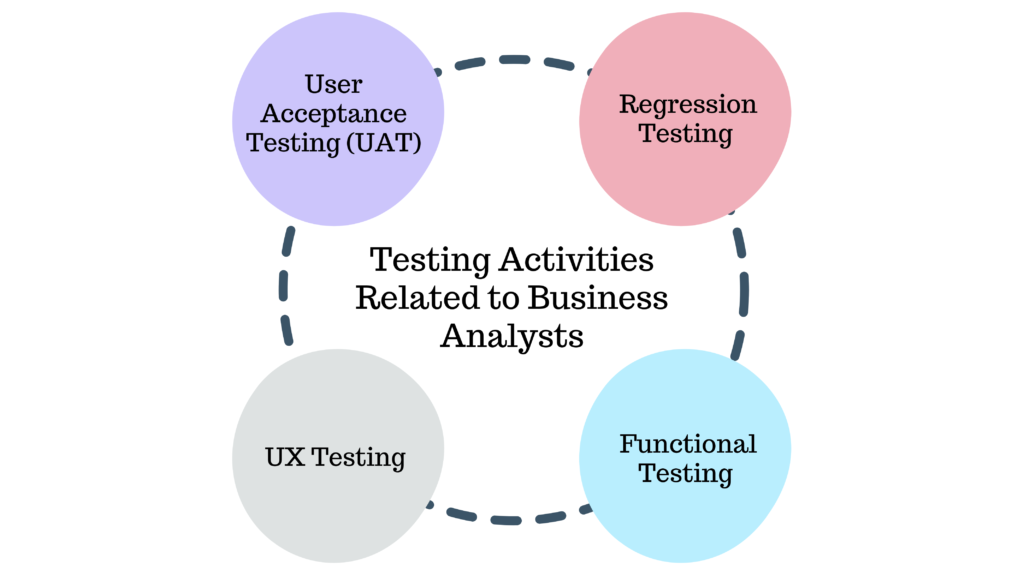
QA Roles: Business Analyst. What They do and How it Relates to QA
Quality assurance projects consist of many roles and responsibilities. Some of these roles seem similar in scope as they would relate to the testing practice firsthand. One role though that is essential and requires less technical skills is that of a Business Analyst (BA).
Q-Pros offers and relies on multiple jobs and various professions to guarantee accurate results and suitable outcomes for distinct software products, from QA Engineers in both manual and automation experiences to Business Analysts, Quality Directors, Data Scientists, and much more.
This article will take a deeper look at the role of the Business Analyst and how they fit into the entire scheme of quality assurance.
Let us start by defining BAs and what their prime objectives are.
What is a Business Analyst?
A business analyst is a person in charge of providing analytical data and various documents to facilitate the work of IT experts in alliance with business requirements and market research.
BAs are responsible for interpreting business processes to operational figures. The role is distinctive in the initial stages, where defining the business requirements is necessary for IT and testing experts to start strategizing based on gathered comprehensive data.
What are the roles and responsibilities of QA Business Analysts? (What Business Analysts do)
Business analysts do not need to have a strong technical background. However, in QA domains, BAs need to understand how the system or product at hand functions and what are its key aspects of service ability as expected.
The roles of business analysts vary to cover multiple phases but shine most in the initial phases of launching a project and agreeing on methodology and service.
Here are some of BA responsibilities and daily tasks:
- Engage with project stakeholders to gather product information. And cooperate with all primary business members and team members.
- Provide professionally written documents and clear reports to all involved team members and business owners to facilitate the working progress.
- Identify fundamental issues and investigate areas of improvement based on market standards and enhancements.
- Conduct presentations to all involved members (SDLC/STLC contributors) to help implement QA plans and testing methods.
- Identifying budgets, deadlines, and primary requirements for testing plans.
- Validate end results from executed plans and confirm fulfillment of requirements
- Supervise the implantation process to keep every involved member on the same page.
How to become a QA Business Analyst:
Acquiring a degree in business-related majors can be a way to get yourself a job as a BA. But to specifically get a job in QA, you would need to work your way up through QA jobs. QA engineers usually become business analysts as they get more experienced with the entire QA process through the years.
Having an IT background mixed with technical experience is a plus. This path usually leads to upper-level jobs in QA as it scans every area of work.
So, with some years of experience and proven effort, anyone can be a business analyst in QA, whether they have a degree in business or not, as most companies favor experience over specific academic certifications.
One way to start is to obtain a software testing certificate from a recognized institution. This will aid you significantly in getting a QA job and boost your career scores.
Learn more about software QA certifications that help you get a job in the field.
The BA’s Role in Testing
Business analysts must always be at the top of their game to answer questions and provide counseling for team members at every production phase.
Here is how BAs relate to some testing activities:

User Acceptance Testing (UAT) – business analysts are required to be present during UAT sessions to verify that the system has fully met requirements through end-users’ usage.
Regression Testing – BAs can select regression test cases that confirm successful outcomes based on expectations.
UX Testing – BAs have the responsibility to look for ways to improve user experience and expand the testing process based on that factor.
Functional Testing – Since business analysts have all the information and specifications regarding functionality, they must remain available for advice and supervision during functional tests.
In Conclusion
Business analysts are inseparable from QA projects. They have the major responsibility to certify the success of the project and keep clients and business owners aligned with the working progress. They are the face of the project, and they make sure that everything is clear for all involved parties.
Having tech experience is a major factor in becoming a business analyst. Most companies value individuals who have both business-related university degrees and dense experience.
BAs work with testers and developers to keep the work on track, clear out any misconceptions and answer questions regularly.
As a leading and pioneering testing service provider, we at Q-Pros make sure to utilize only skilled Individual’s in the QA field from all aspects and domains. Our BAs employ modern methods and ensure a healthy flow of analyzed data and comprehensive information through the entire scheme of quality assurance.
Request a service through our online form and learn more about us.

